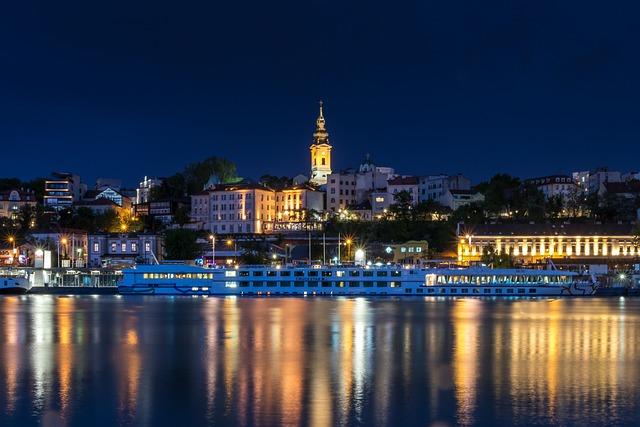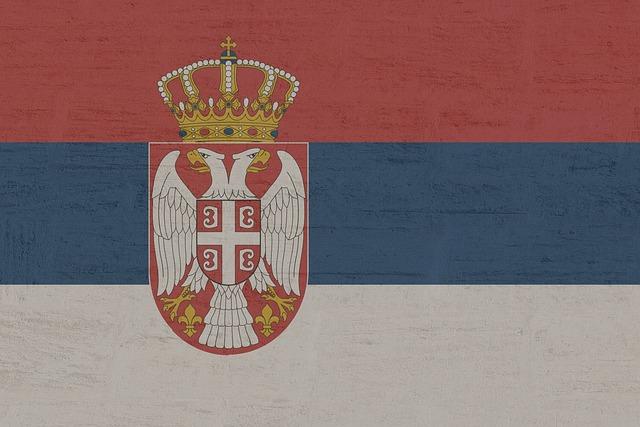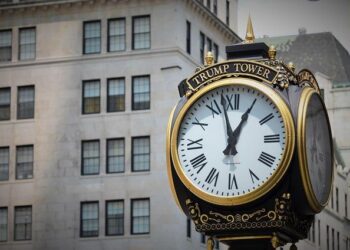In a surprising diplomatic turn, serbia has found itself at the center of geopolitical tensions following its unintentional support for a United Nations resolution condemning Russia’s actions in Ukraine. The resolution, which was seen as a notable rebuke to Moscow, caught Serbian officials off guard, leading President Aleksandar Vuƒçiƒá to issue a formal apology to the Russian government. This incident highlights the complex web of alliances and geopolitical pressures in the Western Balkans, where Serbia’s historical ties to Russia continue to influence its foreign policy decisions. As reactions unfold from both Western and Eastern blocs, the repercussions of this diplomatic misstep may have lasting implications for Serbia‚Äôs international relations and its aspirations for European integration. This article delves into the context surrounding the UN resolution, the subsequent apology, and the potential ramifications for Serbia’s position in the global arena.
Serbias Diplomatic Misstep and Its Implications for International Relations

Serbia’s recent endorsement of a UN resolution concerning Ukraine has sent ripples through the already complex web of international relations in the Balkans and beyond. this unexpected alignment with Western interests highlights a significant diplomatic misstep that has the potential to alter Serbia’s long-standing ties with Russia. Serbia, traditionally known for its close historical and cultural connections with Moscow, found itself in an uncharacteristic position of supporting a resolution that many perceived as antagonistic to Russian interests. The nation’s leadership, particularly President Aleksandar Vuƒçiƒá, swiftly offered apologies, aiming to mitigate potential fallout. However, the act of backing the resolution not only embarrassed Serbia domestically but has also raised questions about its foreign policy direction and its capacity to balance relations between East and West.
In light of this diplomatic faux pas, analysts speculate on the implications for regional stability and serbia’s status on the global stage. A few critical points emerge from this incident:
- Strategic Realignment: Serbia may now find itself navigating a more complex path in its foreign policy, as it seeks to rejuvenate ties with Russia while addressing Western concerns.
- Domestic Backlash: Vuƒçiƒá’s administration could face increased scrutiny from nationalist factions within Serbia that feel betrayed by this diplomatic course.
- International Perception: Serbia’s bipartisan support for the UN resolution may lead international observers to reassess its commitment to neutrality amid geopolitical tensions.
Moreover, the rapid acceptance of Vuƒçiƒá‚Äôs apology by Moscow further complicates matters, suggesting a nuanced response from Russia that may include both restraint and an insistence on maintaining influence in the region. This interaction between Serbia and Russia may lead to an ongoing balancing act, where each misstep or change in policy carries weighty consequences. The dynamics of this scenario will be pivotal in shaping Serbia’s role in future Balkan diplomacy and its relations with both Western allies and Eastern partners.
analysis of the UN Resolution on Ukraine: Serbias Role and Responsibility

In the recent geopolitical climate, Serbia’s support for the UN resolution condemning Russia’s actions in Ukraine has sparked considerable debate. Despite Serbia’s customary alignment with moscow, President Aleksandar Vuƒçiƒá’s shift reflects a complex interplay of national interest and international diplomacy. The resolution not only underscores the growing Western influence in the region but also highlights Serbia’s precarious position as it navigates its historical ties to Russia while seeking European integration. Key factors influencing Serbia‚Äôs stance include:
- European Union Aspirations: Serbia’s ambition to join the EU compels it to align with western norms and values.
- Economic Considerations: Potential sanctions from the West could jeopardize Serbia’s economy, prompting a reconsideration of its foreign policy.
- Regional Stability: Supporting the resolution may be viewed as a move to foster regional stability amidst escalating tensions.
Following vuƒçiƒá‚Äôs unexpected support, Russia‚Äôs acceptance of his apology illustrates the fragile nature of alliances in the Balkans. The diplomatic response not only reflects Moscow’s desire to maintain influence in the region but also its broader strategy of countering NATO’s presence. An analysis of Serbia‚Äôs current geopolitical landscape reveals a nation caught between conflicting loyalties and the need for self-preservation.The following table summarizes key implications of Serbia’s recent actions:
| Implication | Potential Outcomes |
|---|---|
| Strengthened ties with the West | Increased economic cooperation and aid from the EU |
| Strained relations with Russia | Possible diplomatic repercussions and loss of support |
| Domestic political ramifications | Public dissent from pro-Russian factions within Serbia |
Russias Response to Serbias Apology: A Shift in Historical Alliances

In a surprising turn of events, Serbia’s recent endorsement of a UN resolution concerning Ukraine has prompted a swift and notable reaction from Moscow. President aleksandar Vuƒçiƒá’s subsequent apology for what he termed a “mistaken” alignment has drawn considerable attention, highlighting the complexity of Serbia’s geopolitical stance. russia’s acceptance of Vuƒçiƒá’s apology marks a significant moment in the historical alliance narrative between the two nations, effectively signaling a potential recalibration of loyalties that could have far-reaching implications within the balkans and beyond. The incident serves as a reminder of the delicate balancing act Serbia faces as it navigates its relationships with both Western powers and traditional allies like Russia.
This development raises essential questions about the future of Serbia-Russia relations, particularly considering the ongoing conflict in Ukraine and the Western region’s response to it. Analysts suggest that Serbia may now be more inclined to reconsider its foreign policy approach, looking to align more closely with Russian interests while maintaining its European aspirations. Key aspects of this evolving dynamic include:
- Increased Diplomatic Engagement: Expect heightened discussions between Serbia and Russia to reaffirm their longstanding alliance.
- Economic Cooperation: Potential for expanded trade agreements and energy partnerships, reinforcing Serbia’s dependence on russian resources.
- Public Sentiment: Monitoring how Serbian nationalism influences perspectives on foreign alliances, particularly in the context of the ongoing geopolitical tensions.
The Impact of serbias Actions on Its Relationship with the EU and NATO

Serbia’s recent endorsement of the UN resolution condemning the Russian invasion of Ukraine signals a significant shift that could reshape its rapport with the European Union and NATO. This unexpected alignment with Western diplomatic norms prompted a swift response from Moscow, with President Vladimir Putin accepting Serbian President Aleksandar Vuƒçiƒá’s subsequent apology. Analysts suggest that this episode reflects Serbia’s precarious balancing act between maintaining its long-standing ties with Russia and pursuing deeper integration with European institutions. The implications of such a decision could influence Serbia’s EU accession negotiations, as alignment with EU values on international law is a prerequisite for membership.
Turning to the broader geopolitical consequences,Serbia’s actions may be interpreted as both a support for the territorial integrity of Ukraine and a cautious step towards the West. In response to recent developments, the EU may reassess its approach towards Serbia’s ongoing candidacy, perhaps accelerating discussions around critical reforms. Key aspects of Serbia’s relationship with European institutions could be impacted, including:
- Trade Relations: Enhanced economic partnerships may emerge from improved diplomatic ties with the EU.
- Security Cooperation: Serbia’s participation in NATO-led initiatives could gain momentum, signaling a stronger commitment to collective security.
- Political Leverage: Could affect Serbia’s negotiations with other nations in the Balkans, as this might compel Kosovo towards a more proactive dialog.
As Serbia navigates this complex landscape, it remains imperative for the government to clearly communicate its foreign policy objectives. A re-evaluation of Serbia’s stance towards both Russia and the West could potentially alter the future dynamics of Balkan politics, impacting regional stability and cooperation.
Recommendations for Serbia: Navigating Future Diplomatic Challenges in the Region

Considering Serbia’s recent diplomatic misstep regarding its support for a UN resolution on Ukraine, it is critical for the country’s leadership to recalibrate its foreign policy strategy. As Serbia navigates its intricate relationships within the Western Balkans, several key considerations should inform its approach to future diplomatic challenges:
- Strengthening Regional Alliances: Fostering deeper ties with neighboring countries can enhance collective security and political influence.
- Consistent Messaging: Establishing clear and consistent positions on international issues will help build credibility on the global stage.
- Engaging with the EU: Enhancing cooperation with European institutions could bolster Serbia’s integration efforts while addressing geopolitical tensions.
- Maintaining Open Channels with Russia: A balanced relationship with Moscow is essential, given historical ties and economic dependencies.
Furthermore, preparation for potential diplomatic fallout should be prioritized. The following strategies could mitigate risks associated with similar situations in the future:
| Strategy | Description |
|---|---|
| Proactive Dialogue | Engaging stakeholders early on to clarify intentions and expected outcomes. |
| conflict resolution mechanisms | Developing frameworks to address disputes amicably before they escalate. |
| Public Diplomacy | Using media and cultural exchanges to foster goodwill and better understanding. |
Understanding Public Sentiment in Serbia Regarding Ukraine and Foreign Policy Decisions

Recent events have shed light on the complex landscape of public sentiment in Serbia regarding its stance on Ukraine and the broader implications of foreign policy decisions. Following Serbia’s unexpected support for a United Nations resolution condemning Russia’s actions in Ukraine, the reaction from both the Serbian public and government officials has been mixed. Many citizens exhibit a growing concern over the potential alienation from traditional allies while wrestling with the need for stronger ties to European institutions. Key factors influencing this sentiment include:
- Historical relations: Serbia‚Äôs historical ties with Russia complicate the nation’s current diplomatic maneuvers.
- EU Aspirations: Stronger alignment with European policies reflects Serbia’s ambitions to join the EU, yet divides public opinion.
- Economic Considerations: The potential for economic repercussions from both the EU and Russia plays a significant role in shaping perspectives.
In the aftermath of President Vuƒçiƒá’s apology to Moscow for the diplomatic blunder, there is a palpable sense of hesitation among the populace. Many citizens fear that engaging too closely with Western powers may provoke retaliatory measures from Russia, a key player in the region. To illustrate public opinion, a recent survey revealed the following sentiments:
| Public Opinion Factor | Percentage of Respondents |
|---|---|
| Support for EU integration | 65% |
| Concerns over Russia’s response | 58% |
| Desire for non-aligned foreign policy | 52% |
In Retrospect
Serbia’s recent endorsement of the UN resolution concerning Ukraine has sparked considerable debate and raised questions about the nation’s foreign policy stance. The serbian government, led by President Aleksandar Vuƒçiƒá, swiftly classified the vote as an unintended error, seeking to reaffirm its commitment to traditional ties with Moscow. Russia’s acceptance of Vuƒçiƒá‚Äôs apology indicates a complex balancing act between Serbia’s aspirations for greater integration with the European Union and its historical alliances. As Serbia navigates these geopolitical waters, observers will be keen to monitor how this incident may influence its diplomatic relations with both the West and Russia moving forward.The unfolding dynamics will undoubtedly shape not only Serbia’s political landscape but also the broader stability of the Western Balkans region.
















